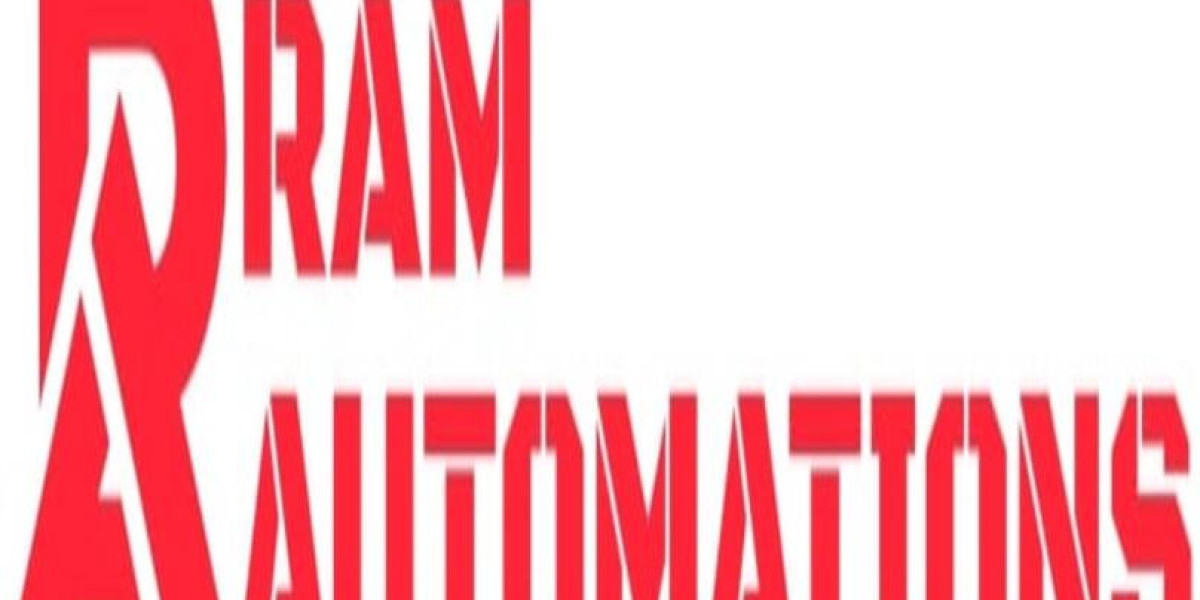In modern industries, automation isn't just a trend — it's a necessity. To keep up with demand, improve efficiency, and ensure safety, industries rely on a range of sophisticated systems and components. At Ram Automations, we specialize in delivering cutting-edge automation parts that form the backbone of industrial control systems.
In this blog, we’ll break down three critical components of any automation setup: PLC systems, power supplies, and transmitters. Whether you're setting up a new control panel or upgrading your existing infrastructure, understanding these elements is key to long-term operational success.
1. PLC Systems: The Brain of Automation
What is a PLC?
A Programmable Logic Controller (PLC) is an industrial computer used to control machinery and processes. It's designed to be robust, capable of withstanding harsh industrial environments, and extremely reliable in automating repetitive tasks.
Why It Matters:
- Handles real-time decision-making
- Reduces human error
- Increases production efficiency
- Integrates with sensors, actuators, and monitoring systems
Applications:
- Conveyor belt automation
- Factory lighting control
- Packaging systems
- Water treatment plant control
At Ram Automations, we offer PLCs from top manufacturers, and our team can help design and implement PLC-based automation solutions tailored to your specific operations.
2. Power Supply Units: The Lifeline of Control Systems
What is a Power Supply?
A power supply unit (PSU) converts electrical energy into the right voltage, current, and frequency required by industrial automation equipment. A stable power supply ensures your systems run smoothly and safely.
Key Features to Look For:
- Surge protection
- Voltage regulation
- Overload protection
- Industrial-grade durability
Why It Matters:
Without a reliable power supply, even the most advanced control systems can fail. Power fluctuations, surges, or outages can halt production and cause irreversible damage to machinery.
Ram Automations’s Recommendation:
Invest in industrial power supplies with built-in fail-safes and redundancy features. We supply high-performance units suited for demanding automation environments.
3. Transmitters: The Silent Communicators
What is a Transmitter in Automation?
A transmitter converts signals from sensors into standardized output signals (like 4-20mA) that can be read by PLCs, HMIs, and other control systems. It’s an essential link between the physical world and digital control systems.
Common Types of Transmitters:
- Pressure Transmitters – Monitor hydraulic systems, steam flow, or air pressure.
- Temperature Transmitters – Provide accurate thermal data from process equipment.
- Level Transmitters – Measure liquid or material levels in tanks or silos.
- Flow Transmitters – Track fluid or gas flow in pipelines.
Why It Matters:
Transmitters ensure real-time, accurate data collection — which is the foundation of any automation system. Without them, decision-making is delayed, and system performance is compromised.
How These Components Work Together
Imagine a simple automation scenario in a food processing plant:
- A temperature transmitter senses the heat level in an oven.
- It sends the signal to a PLC, which compares the temperature to a pre-set value.
- The PLC activates or deactivates heating elements as needed.
- A power supply ensures that the entire control panel runs smoothly without interruptions.
This coordinated setup ensures consistent product quality and energy-efficient operations — all made possible by the integration of PLCs, power supplies, and transmitters.
Conclusion
Automation isn’t just about machines — it’s about precision, safety, and control. By understanding and choosing the right components like PLCs, power supplies, and transmitters, industries can stay competitive and future-ready.
At Ram Automations, we don’t just supply automation parts — we provide solutions. From consultations to installation support, we’re with you at every step of your automation journey.
? Ready to upgrade your automation systems?
Explore our product range or contact us for a personalized consultation.



